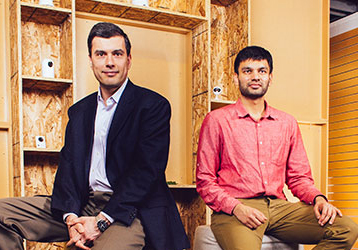Computer Vision to Protect Patients — and Budgets

Prof. Alexandre Bayen and PhD student Pulkit Agrawal developed a computer vision-based system to help memory care centers monitor patient falls and to reduce them where possible. State regulations require an MRI of the head any time a patient suffers an unwitnessed fall, and about a fourth of all Alzheimer’s-related hospital visits are triggered by a fall. With five million Americans currently living with Alzheimer’s, the task of preventing, tracking and treating fall-related injuries has become daunting and costly, with more than a $5 billion annual cost to medicare–and the number of people with Alzheimer’s is expected to double in the next 15 years. A system capable of detecting falls by autonomously monitoring patients and sending therapists video clips could improve the monitoring process immensely “There are no effective drugs yet to treat Alzheimer’s,” Agarwal says. “Until we have them, we have to help patients where they are. Developing computer vision systems to detect falls and fall vulnerability seemed like a good way to improve healthcare for a growing patient population.”